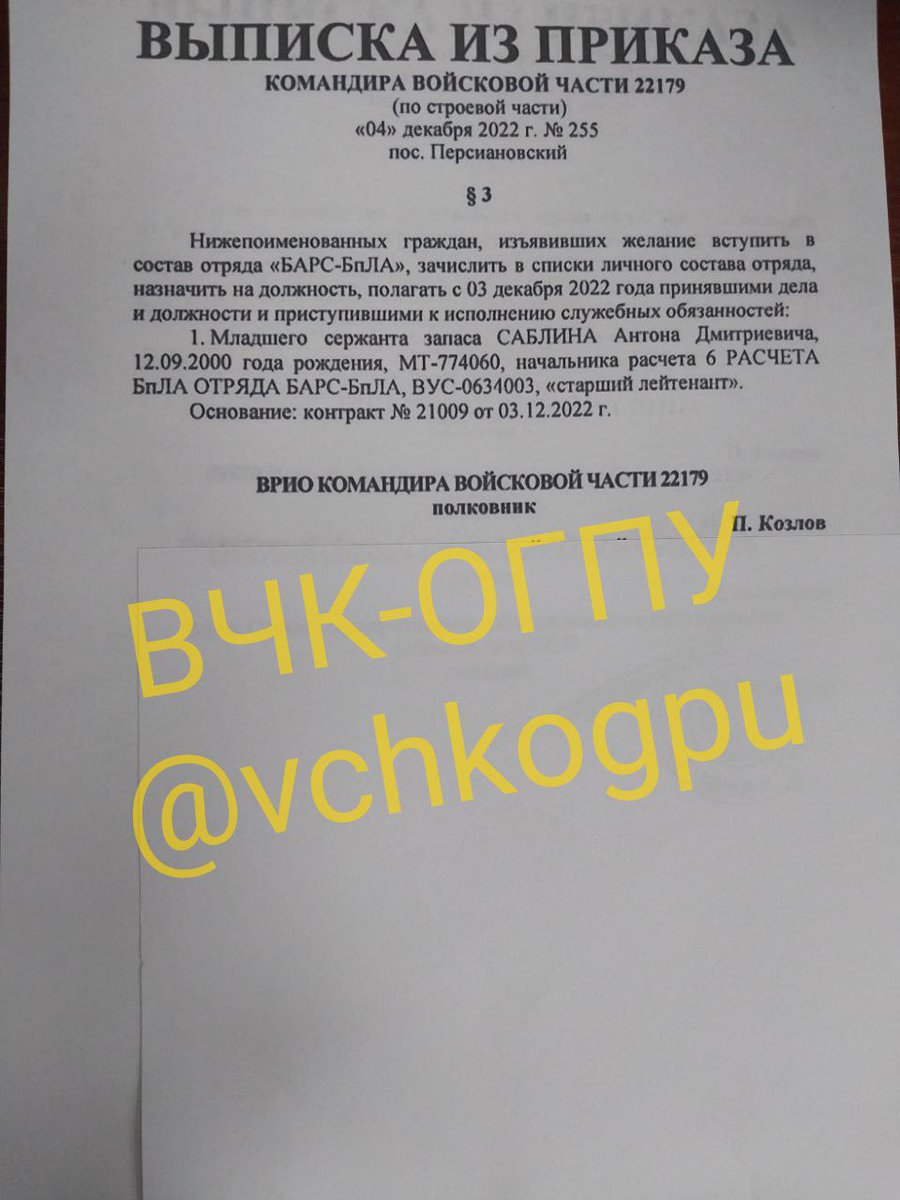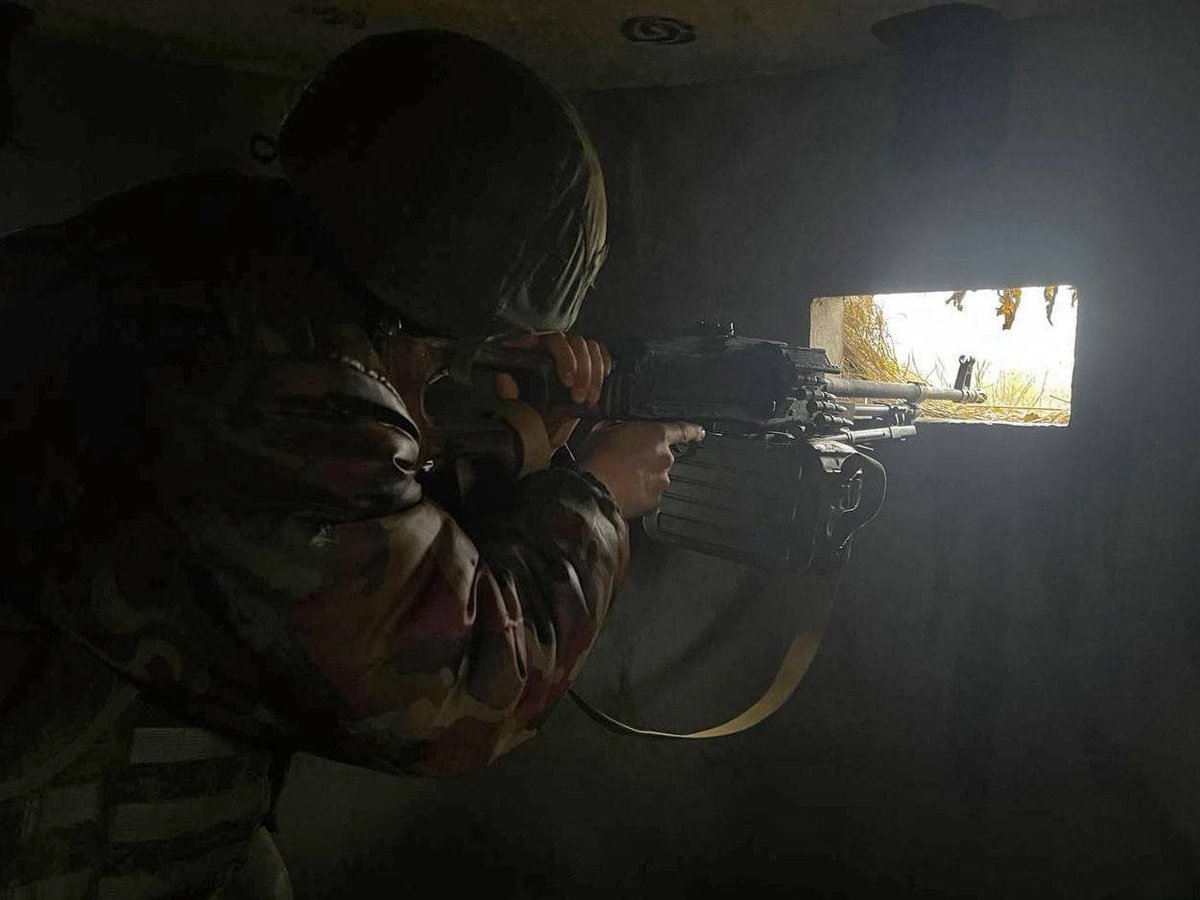
1/ Another account has been published of Russia's disastrous attempt to seize Vuhledar last month using poorly trained and equipped mobilised soldiers. One man says only three out of his unit of 300 survived, having been sent to fight with "bare hands". ⬇️
2/ Men mobilised from the Irkutsk, Altai and Omsk regions and their families say that after the professional soldiers of the 155th Separate Marine Brigade suffered heavy losses in fighting near Vuhledar, hundreds of barely trained mobilised soldiers were sent in.
3/ The Omsk men were given minimal training before going to Ukraine. They "fired off a magazine of cartridges and stood on the parade ground, marching and stamping their feet." That was all they did in three months of service before being sent to the occupied Zaporizhzhia region.
4/ When they arrived, they spent a week in a trench before being sent to fight at Vuhledar. Their commanders' selection was arbitrary: "They pointed a finger: those who were absent at that moment, drunk or sleeping, remained there, and those who caught their eye moved forward."
5/ The fighting took place in an area known as the "Vuhledar dachas" – two groups of holiday cottages south of Vuhledar itself. The Russians lost hundreds of men and dozens of armoured vehicles in the battle. 

6/ The battle was chaotic, with the men advancing against heavily fortified and well-defended Ukrainian positions without adequate artillery support or reinforcements. The men were armed only with automatic rifles.
7/ The brother of one of the men says: "In these dachas, the positions of the Armed Forces of Ukraine are also very well fortified – [our men] are thrown into the assault, my brother's group of 10-12 men could hardly hold out there for a week.
8/ "After one day of battle, among those unprepared soldiers he was the only one left. There were no reinforcements, the artillery was working in an incomprehensible way, and at times it was unclear whose it was – because it was firing at its own people."
9/ The soldier, Andrey, found himself "sitting in a cellar somewhere, firing back at the Ukrainian armed forces who were entrenched in well-fortified positions. And in that situation there was no order to go on the defensive! The order came to assault.
10/ "And what kind of an assault is possible if we are dying one by one even in defence?! The sniper is working, but there are no fewer Ukrainians. Where can we assault?"
11/ Adding to their problems, the men were not trained to work as a group and were unable to provide effective covering fire. Many were killed in the battle. Andrey called his brother Ivan at the end of February to tell him what had happened.
12/ "I heard his voice trembling: "Brother, I don't know how I survived. But I was the only one left in my group". He sobbed for about 10 minutes, telling how his comrades-in-arms, 20-year-old guys, were dying right in front of his eyes.
13/ "They were terrified of this war and just fell into a stupor and became easy targets. He saw them die and could do nothing to help.
14/ "By some miracle he survived the meat grinder, they even told him that he had been nominated for an award and all he could think about was how to get out of there: 'Why do I have to die in someone else's land?'"
15/ Andrey was bitter because "the commanders openly considered them as meat" and forced the men at gunpoint to go into suicidal assaults. His unit was likely under the command of 'Donetsk People's Republic' (DNR) forces, who have gained a reputation for brutality.
16/ "They were covered by [the guns of] local contractors and when you start asking questions or are indignant, they stick a gun to your head and rush you into the assault."
Worse was to come. The men were withdrawn from Vuhledar and sent to attack nearby Avdiivka on 3 March.
Worse was to come. The men were withdrawn from Vuhledar and sent to attack nearby Avdiivka on 3 March.
17/ Andrey called his family again 10 days later. He was now one of only three survivors from his entire brigade. "The brigade is gone, it's just gone. There are three guys left alive (after reinforcement in Makiivka), one of them is a 300 [wounded].
18/ "Guys are thrown into the front line in an assault with one automatic rifle, there is no cover, no first aid, many die from not being assisted in time. [The DNR] do not take the wounded from the battlefield, and if they do, they only take the slightly wounded.
19/ "They are afraid of losing their equipment and of "lying on shells". We are forced to go into an assault at gunpoint. If you refuse, you are put in a cage and fed only once a day, the same with water. If you have to pee you have to go into a bag.
20/ "There is lawlessness and mayhem on the part of the commanders. And the commanders say openly: 'You are only meat for us and nothing else. You can forget the promised rewards and payments. You simply do not exist.'"
21/ Andrey described how he and his comrades were dumped by DNR forces on "landing strips", from where his unit had to walk across open countryside, with no cover, to attack fortified Ukrainian positions. Not surprisingly, they didn't make it.
22/ "Everything there [in Avdiivka] is dug up, everything is poured into concrete, it is simply impossible to survive there. They throw [the men] out in an open field, and [send them] forward." Worse still, their own artillery was so inaccurate that it hit them repeatedly.
23/ In a subsequent call, Andrey said that he was trying to preserve his life by taking a new position two kilometers away, presumably on a quieter section of the front line. "[I'm] taking a risk, because those who return or leave their positions are shot in the back.
24/ "But I have to say: this is a complete ass and I’m going to refuse. That's it, fuck it, our guys are gone. Those whom I was with from Omsk – 300 people, they are just gone."
25/ He acknowledged that he was likely to face consequences for leaving his position – either being thrown into a fresh assault or being executed. It's not clear what has happened to Andrey since then.
26/ The Omsk men were not the only ones to be annihilated at Avdiivka. As has previously been documented, so too was the 1439th Regiment from Irkutsk. Relatives of some of the few survivors have described what happened.
https://twitter.com/ChrisO_wiki/status/1631994836831158273
27/ Like the Omsk men, the Irkutsk men were dumped from APCs in the middle of open countryside. One wife says: "On 1 March, early in the morning their battalion of 25 men were brought in by the DNR troops on two APCs and literally kicked out in an open field. And they drove away!
28/ "They were unsupported, wearing such thin armour you could pierce them with a stick. Before they even had time to look around, [the Ukrainians] started shooting at them. According to my husband, it was "some bird" [a drone] that caused the most injuries."
29/ Her husband was badly wounded in the Ukrainian bombardment. "He was lucky that his comrade-in-arms carried him, they usually do not do that. Usually they leave people behind, both wounded and killed, and put them all on the list of the missing.
30/ "He said they ran and then walked across a field strewn with corpses. Just walking over bodies that were still warm. It was a nightmare, he said and cried."
Only two members of the battalion survived, albeit with wounds.
Only two members of the battalion survived, albeit with wounds.
31/ Despite the husband's injuries, his commanders still wanted him to continue fighting. "He phoned me and said that he still has shrapnel in his leg and tomorrow he will be discharged and will have to go back to the assault." /end
Source:
sibreal.org/a/mobilizovann…
Source:
sibreal.org/a/mobilizovann…
• • •
Missing some Tweet in this thread? You can try to
force a refresh

















